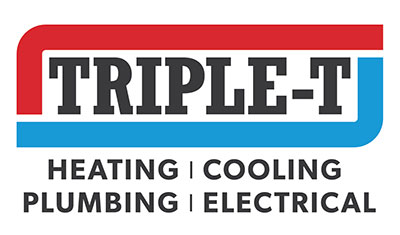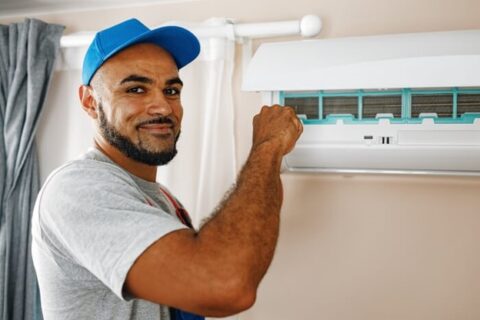Should I Zone My Home HVAC?
Is there a constant argument in your home about the thermostat settings? Is it too cold in one room and too hot in another? If you live in a two story home, is the upstairs always hot while the downstairs is always cold? Do you have rooms in your house that are seldom occupied? If so, you may want to install a zoned HVAC system.
What is an HVAC Zoned System?
This is simply a heating, ventilation, & air conditioning (HVAC) system designed to provide varying temperatures to different parts of a house or building. The system helps to customize the cooling and heating in different rooms or floors of the home, to achieve the ideal temperature in each area.
With a large home, it’s very common for some spaces to require warmer or cooler temperatures than others, and a simple air conditioning or heating system with one thermostat may not be able to accomplish that.
An HVAC Zoned system is designed with motorized dampers, which close or open ductwork, regulating the airflow to different parts of the home. Programmable thermostats can be set up to control the temperatures of each specific area. Adjustments in the thermostats determine when and how the dampers will open or close the ducts to increase or decrease the airflow to one zone or another.
While the best time to set up a zoned system is during new construction, often a zoned damper system can be set up using your existing HVAC system. The system would then control the various zones’ temperatures, so that you won’t have to necessarily have the expense of installing a completely new unit.
What are the Advantages of a Zoned System?
The most common benefit of such a system is that you can have different temperatures for different rooms. This means that you don’t have to be content with a single thermostat setting for the whole house. Some zoned systems allow you to divide your home up into four or more different zones. That way you can enjoy comfortable temperatures anywhere in your house without affecting the comfort of others.
According to recent studies, a zoned system can reduce your utility bills by up to 35%. Since the temperatures are customized for different zones, you don’t have to waste energy heating or cooling rooms that are not being used. You can cool only the parts of the home that need it, and you can make changes as needed.
Some systems allow you to control the system remotely with your smart phone or tablet. This allows you to adjust the temperature even when you’re not at home. You could conceivably adjust the thermostat when you’re leaving the gym or office, so that your home is perfectly cooled or heated when you get back. Adjusting the indoor temperature this way will provide energy savings.
Another advantage of a zoned system is that it can improve your quality of life. For example, since you’ll be splitting your home into zones, if there’s an area of your home more prone to dust, dirt or allergens, those contaminants won’t be circulating throughout the rest of the home.
Installation of a zoned system can also improve and extend the life of your HVAC system, since it doesn’t have to overwork trying to heat or cool the entire house. By regulating temperatures only where necessary, the system can work well within its limits. This will help to extend the lifespan of the system.
The capacity of your current heating and cooling unit is an important consideration in adding a zoned ductwork system. You would need to make sure that you have sufficient capacity to achieve the best results.
When installing your zoned system, it’s important to determine if the existing ductwork is sufficient. If the ductwork is designed and sized properly, it will ensure that sufficient conditioned air will reach each specific zone.
Who Needs a Zoned HVAC System?
A zoned HVAC system is ideal for almost any household. Obviously, your heating and cooling system is integral to ensure the comfort and health of your family. By using a zoned system, you can make sure that all the rooms in the house are heated or cooled to your exact specifications.
Typically, the rooms in the upper floors of a home are hotter than the lower floors. Having a zoned system can moderate temperatures in both areas. If you have rooms that get stuffy faster, this type of system will help maintain fresh and comfortable conditions.
Final Thoughts
We all want to live in comfort. We all want the best quality of life which includes clean fresh filtered conditioned air in our homes. Having a zoned HVAC system will ensure that each room or zone in your home is getting the right mix of heat and air. In addition, you may be able to save significantly on your energy costs by improving the efficiency of your heating and air conditioning systems. Finally, such a system can extend the lifespan of your HVAC system.
Converting your existing HVAC system to a zoned system may seem to be a very complicated matter, but with qualified expert advice, you can be assured that you’re making the best decisions for your family. If you would like to know more about the installation of a zoned HVAC system to your home or office, please contact the experts at Triple T Plumbing, Heating and Air.
Established in 1974, we are a family-owned and operated business dedicated to serving our community in the area of heating and air conditioning, air quality services, and plumbing. With a commitment to customer satisfaction and over 40 years of hands-on experience, our team can be trusted with virtually any service challenge. Visit our website, or contact us at 801-307-4835 in Utah County or 435-258-9864 in Washington County.


